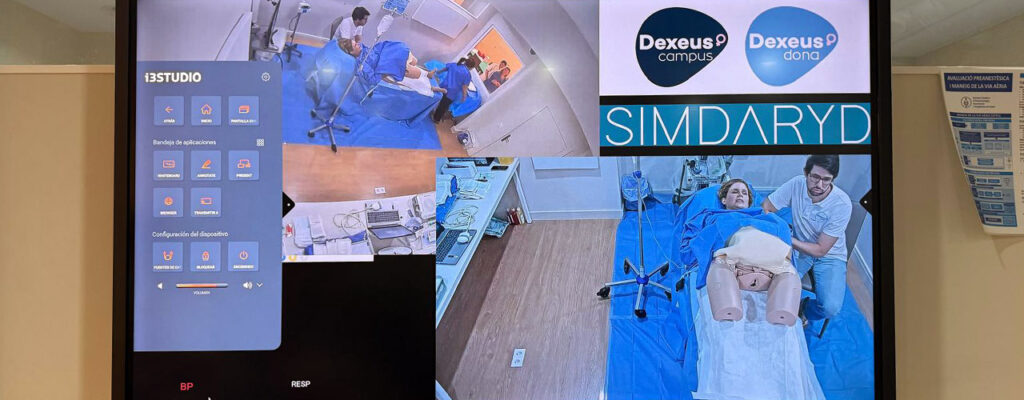
On 30 May, an advanced training day on obstetric emergencies was held, focusing on the clinical management of postpartum haemorrhage (PPH), one of the most critical obstetric emergencies.
This interdisciplinary course brought together gynaecologists, midwives, anaesthetists, nurses and nursing assistants with a common goal: to improve patient safety by strengthening teamwork in the delivery room and operating theatre.
The activity was carried out in a blended learning format, beginning with an online theoretical phase through the Dexeus Campus Virtual Classroom, where participants were able to review key concepts and updated protocols in PPH.
The in-person session, held at the SIMDARYD Medical Simulation Centre, was divided into two main blocks:
One of the pillars of the course was its participatory and reflective approach, which fostered an atmosphere of mutual respect and collaborative learning. The day concluded with a structured debriefing, where teams analysed their performance, identified areas for improvement and shared key learnings applicable to real clinical practice.
The training was delivered by the Clinical Simulation Team of the Department of Obstetrics, Gynaecology and Reproduction at Hospital Universitari Dexeus – Dexeus Mujer and the Department of Obstetrics and Gynaecology at the Hospital Universitari General de Catalunya, with the collaboration of the Medical Simulation Centre (SIMDARYD) of the Department of Anaesthesiology, Resuscitation and Pain Treatment (DARYD) of the Hospital Universitari Dexeus.
This type of training, known as Simulation-Based Team Training (SBTT), is becoming established as a strategic tool in the quality and patient safety programmes of many obstetrics units. Beyond the development of individual technical skills, SBTT allows for the optimisation of coordination, communication and decision-making in highly complex clinical situations.